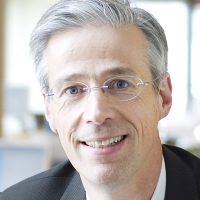The talk defines as Open Science practices and processes in all scientific disciplines that foster participation and collaboration, accessibility and reuse, transparency and verifiability in science. This is linked to the use and promotion of an open web and the provision of infrastructures for scholarly research, teaching and learning. Open Science also promotes sustainable impact, both transdisciplinary in the science system as well as in politics, business, culture, and public life. Open Science is rooted in the tradition of established principles of good scientific practice. The goal is to critically reflect traditional scientific culture and to transfer it into the present era of linked-up research. The talk introduces different dimensions of Open Science, such as open data, open research practices etc., and will particularly focus on its impact on societal innovation, mainly through the innovative concept of citizen science.
 | Facilitator: Klaus Tochtermann Date : Thursday 25th July Time: 6:30pm until 8.00pm Location: 22nd Floor, United Centre, Admiralty |
The meeting is $200 for non-members and free for HKKMS & KMIRC members. Further details on the speaker can be found below.
About the speaker – Klaus Tochtermann
CV
At Dortmund University Klaus Tochtermann received his doctorate in computer science with a thesis on A model for hypermedia: description and integrated formalisation of essential hypermedia concepts. Klaus Tochtermann spent the following year as a post-doc at Texas A&M University, Center for the Studies of Digital Libraries, USA with a grant from the Max-Kade-Foundation. His key activities in this time were in the field of web-based tools and services for digital libraries. From 1997 until 2000 he was division head at the FAW Ulm (Research Institute for Application-oriented Knowledge Processing at Ulm University).
From 2001 until 2010 he was the scientific director of the research institute Know-Center, a competence center for information technology-based knowledge management located in Austria. In 2001 founded the I-KNOW conference series in cooperation with Hermann Maurer. In 2002 he received his habilitation in the field of Applied information processing with the thesis Personalisation in the Context of Digital Libraries and Knowledge Management. From 2004 until 2010 he held the chair for Knowledge Management, at the TU Graz (Austria). From 2007 until 2010, he was also head of the Institute for Networked Media at Joanneum Research, an application-oriented research institution located in Graz. Since 2010, Klaus Tochtermann has been the director of the ZBW – Leibniz Information Centre for Economics and has held a chair for Media Informatics at Kiel University.
In 2012, Klaus Tochtermann initiated the Leibniz Research Alliance Science 2.0. This research alliance addresses the question of how the participatory Internet (e.g. Social Media) changes research and publishing processes, and how information infrastructure institutions can participate in the shaping of these changes.
In 2014, the ZBW – Leibniz Information Centre for Economics headed by Klaus Tochtermann received the national “Library of the Year 2014” award from the German Library Association (dbv).
Talks